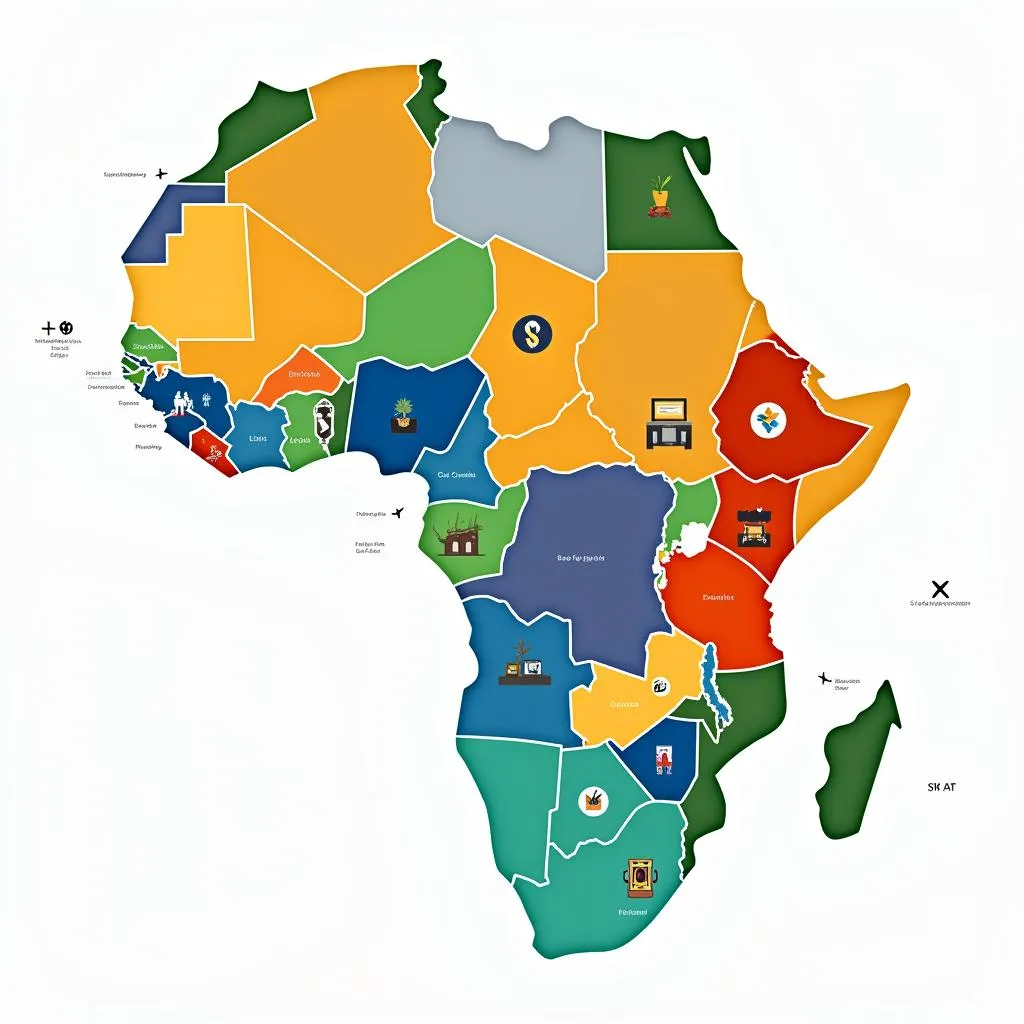Unlocking Africa’s Potential: Exploring the African Country of Startup Hubs
The African continent is abuzz with entrepreneurial energy, rapidly transforming from a region known for its challenges to a hotbed of innovation and technological advancement. While the term “African Country Of Startup Hib” might seem a bit cryptic at first, it hints at the exciting reality of Africa’s burgeoning startup ecosystem. This isn’t a story of a single nation, but rather a continent-wide movement where numerous countries are vying for the title of Africa’s startup capital.
The Rise of African Tech Hubs
Across the continent, we’re witnessing a surge in tech hubs, each with its own unique strengths and attracting a diverse range of entrepreneurs and investors. These hubs are more than just physical spaces; they are vibrant communities fostering collaboration, mentorship, and access to funding opportunities.
 Map of African Tech Hubs
Map of African Tech Hubs
Key Players in the African Startup Landscape
Several countries have emerged as frontrunners in the race to become Africa’s startup hub:
- Nigeria: Home to the bustling tech scene of Yaba in Lagos, often dubbed “Yabacon Valley,” Nigeria boasts the largest economy in Africa and a young, tech-savvy population. Fintech is particularly strong here, with companies like Flutterwave and Paystack achieving unicorn status.
- Kenya: Known for its mobile money revolution with M-Pesa, Kenya has a strong track record of innovation. Nairobi, its capital, is a major startup hub, attracting significant investment and producing successful ventures like Twiga Foods and Cellulant.
- South Africa: With a more established economy and robust infrastructure, South Africa attracts a different type of startup, often focused on deep tech and B2B solutions. Cape Town and Johannesburg are the main startup centers, nurturing companies like Yoco and Aerobotics.
 African Entrepreneurs Pitching Ideas
African Entrepreneurs Pitching Ideas
Factors Fueling the African Startup Boom
Several factors contribute to the rapid growth of the African startup ecosystem:
- A Young and Growing Population: Africa has the youngest population in the world, with a median age of 19.7 years. This youthful demographic is digitally native, eager to embrace new technologies and create solutions for local challenges.
- Increased Mobile Penetration: Mobile phone penetration has skyrocketed across Africa, providing access to information, financial services, and online markets for millions. This mobile-first environment has fostered innovation in areas like mobile payments, e-commerce, and telemedicine.
- Growing Investment Appetite: International investors are increasingly recognizing the potential of African startups. Venture capital funding is flowing into the continent, providing crucial resources for growth and expansion.
“The African startup ecosystem is brimming with untapped potential,” says Adisa Kamar, a venture capitalist specializing in African tech. “Entrepreneurs here are tackling real-world problems with innovative solutions, and the opportunities for growth are immense.”
Challenges and Opportunities
While the future looks bright for African startups, challenges remain. Limited access to funding, inadequate infrastructure in some regions, and a lack of skilled talent are hurdles that need to be addressed.
 Women in Tech Workshop in Africa
Women in Tech Workshop in Africa
However, these challenges also present opportunities. Investing in education and infrastructure development will further unlock Africa’s entrepreneurial potential. Supporting initiatives that promote digital literacy and skills development is crucial for fostering a thriving startup ecosystem.
The Future of African Innovation
The “african country of startup hib” isn’t a singular destination but a testament to the collective rise of African innovation. With its youthful population, entrepreneurial spirit, and growing tech ecosystem, Africa is poised to become a global leader in the digital economy. The journey has just begun, and the world is watching as African startups continue to disrupt industries, solve problems, and shape the future.
